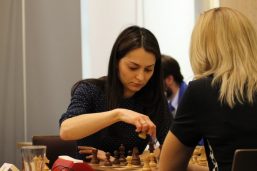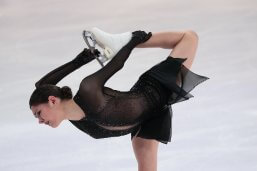The majority of Russian women are known to be conservative and traditional when it comes to most aspects of life. They value family, children, and traditions. They like to be feminine and dress in beautiful clothes and to be treated like women and not something in between. However, that are trends in Russia today where some women feel the Western way of doing things serves them better. The Russian activist group and punk rock band Pussy Riots is an example of this. Thus, we’ll here give you an introduction to Pussy Riot and what they signify in Russia. Pussy riot was founded in August 2011. Originally the group had around 11 members and wanted to challenge the Russian governmental leadership and role in Russian society. The leaders and most likely the initial founders were Nadezhda Tolokonnikova and Maria Alyokhina. Pussy Riot staged illegal provocative guerrilla performances in public areas such as squares, halls, and churches, which especially created an outcry from the public, the Russian orthodox church, and the government.
Pussy Riot’s performances were filmed and posted on the Internet. Their musical statements included feminism, LGBT rights, opposition to Russian President Vladimir Putin, and the Russian Orthodox Church. On February 21, 2012, Pussy Riots became famous overnight with a provocative performance inside Moscow’s Cathedral of Christ the Saviour. The group’s actions were condemned as heretical by the Russian Orthodox church and stopped by church security officials. Two weeks later, the leaders of Pussy Riot, Nadezhda Tolokonnikova and Maria Alyokhina, were arrested and charged with hooliganism. A third member of Pussy Riot, Yekaterina Samutsevich, was detained on March 16. On August 17, 2012, the three members were convicted of “hooliganism motivated by religious hatred.” All three Pussy riot members were sentenced to two years in prison. In Western countries, their sentences were criticized widely by organizations such as Amnesty International and state officials from many Western countries.
However, in Russia, the public, for the wast majority, thought that Pussy Riot and its members deserved the sentences they got. In February 2014, some unidentified Pussy Riot members stated that the leading founders, Nadezhda Tolokonnikova and Maria Alyokhina, were no longer members of the group. However, the same year Russia held the Winter Olympics in Sochi, where both Nadezhda Tolokonnikova and Maria Alyokhina showed up and participated in a Pussy Riot act, and where they again managed to get arrested for breaching the peace. Their arrest again got a lot of attention in Western countries as they were pepper-sprayed and attacked by the security detail guarding the Olympics, culminating with a civil suit a the Europen Court Of Human Rights. Nevertheless, in Russia, people saw them as saboteurs of a great event that made Russian look bad rather than vigorous. Also, from hereon, the Russian public opinion of Pussy Riot reached a new low, culmination in that Nadezhda Tolokonnikova and Maria Alyokhina were attacked and sprayed with green dye by local youths in Nizhny Novgorod in March 2014.

















